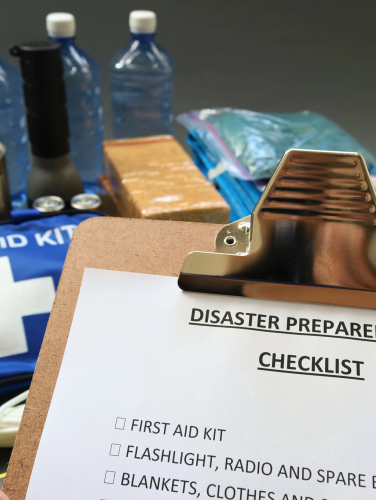
Public Health Preparedness
The goal of the Mecklenburg County Public Health (MCPH) Preparedness Team is to ensure readiness among staff as we prepare for, respond to, and recover from public health emergencies through coordinated training, planning, and exercises.
During each event, we serve as the department’s coordinators to 1) monitor and respond to the event 2) provide assistance and support to all partners and 3) provide guidance and recommendations for key decision makers.
Before and after events, we develop strategic plans to outline how MCPH will respond to each event. At the conclusion of developing a plan, we train and exercise to test our overall readiness. Exercising our plans allows our team the opportunity to evaluate the department on overall readiness to ensure we can respond to any event.
Six Domains of Preparedness
The Mecklenburg County Public Health Preparedness Program works diligently to advance the CDC's six areas of preparedness to ensure readiness for all emergencies that may impact the public’s health. Check out each of the domain’s below to learn how we prepare for all potential threats. Each domain listed below provides our team with a standard framework as we plan, exercise, and evaluate our ability to respond and recover from all public health emergencies.
Community Resilience: Preparing for and recovering from emergencies.
Incident management: Coordinating an effective response Information.
Management: Making sure people have information to take action.
Countermeasures and Mitigation: Getting medicines and supplies where they are needed.
Surge Management: Expanding medical services to handle large events.
Biosurveillance: Investigating and identifying health threats
Community Engagement
Community engagement is the process of developing relationships that allow key partners to work together to address health-related issues and promote well-being to achieve positive health outcomes. Community engagement is crucial for managing, controlling, and mitigating natural and manmade disasters. The COVID-19 pandemic has confirmed the need to elevate community engagement to build equity, trust, and sustainable preparedness strategies throughout local communities, specifically those who may be disproportionally impacted. Strengthening communities enhances opportunities for better outcomes and building resiliency that will mitigate the impact of future disasters and emergencies.
The Mecklenburg County Preparedness Team strives to promote readiness within all communities by building relationships with community leaders to provide trainings and workshops to increase overall preparedness. Trainings and workshops are designed to equip all with the tools and resources needed during emergencies.
If you would like for us to host a workshop, training or community or school fair, please contact us.

